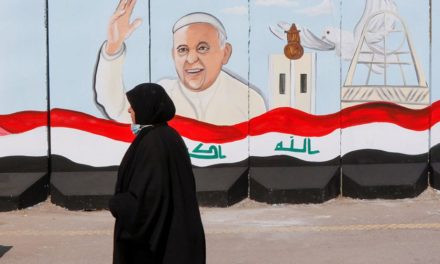Response
Response to Alex Vatanka and Sarkawt Shamsulddin article: “Forget ISIS: Shia Militias Are the Real Threat to Kurdistan”
With ISIS only fifteen minutes away from Erbil (again), writers like Alex Vatanka and Sarkawt Shamsulddin are publishing articles on the threat of Shia militias to Kurdistan. The town of Gwer remains in contention and Sinjar has still not been fully liberated; ISIS is pushing through land that it took back in June 2014 but somehow the Shia militias that are fighting and dying alongside the Kurdish Peshmerga forces are “the real threat” to Kurdistan?
“The Iraqi Kurdish military, the Peshmerga, proved to have the capability to repel the extremist Sunni fighters from ISIS and to hang on to recaptured territory. They have done so largely without many resources or support from West.”
The Peshmerga have enjoyed extensive resources and support, not only from the West, but from Iran. Victory at Sinjar Mountain against ISIS required PKK/PYD assistance plus US and Iraqi air support. The Peshmerga have received training from Germany, Italy, and Turkey in the past year. Iran has consistently armed the Peshmerga and KRG President Masoud Barzani credited Iran as the first nation to assist the Kurds against ISIS.
“The Kurds and Iraqi Shia militiamen are already engaging in disputes about jurisdiction and authority. This in the context of the KRG seeking to provide law and order and services to newly recaptured towns. The goal is to encourage displaced families to return to their hometowns.”
Zumar has been cleared of Arab residents and Kirkuk has expelled Arab IDPs. Zumar was recaptured by the Peshmerga in late October of last year with Arab homes burned and shops seized after its owners were expelled. KDP official and MP Mohsin Saadoun claimed, “it is impossible to live with them [Arabs] again in the same region.” Several Kurdish politicians are pushing to establish boundaries that physically separate Kurdish and Arab districts in other mixed regions.
“Further north inside KRG territory, the Minister of Peshmerga Affairs, Mustafa Sayid Qadir, maintains that his ministry is fully cooperating with Yezidi armed volunteers. In an interview with the authors, Qadir confirmed that the ministry has formed new units for minorities that are already in the ranks of the Peshmerga.”
Yezidi volunteers have been neglected for months on end. Yezidis requested help and weapons from the KDP office in Sinjar but were denied, and told it was not their job to give out guns, but that Peshmerga would protect them – the Peshmerga ultimately fled without informing the civilians which led to their massacre. In an interview with Yezidi MP Vian Dakhil, she states, “The Peshmerga who should have protected the people of Sinjar fled before the people could flee. They have to tell the world why they fled.” According to êzîdîPress news agency, even four months after losing Sinjar, the Peshmerga would not arm the 2000 Yezidi volunteers and were not interested in a new offensive to recapture the city.
“However, from the KRG perspective, two Shia militia forces—Asaib Ahl Haq and the Badr militias—are uncontrollable.
Both these militias are backed by Iran, and the their military operations are effectively overseen by Qassem Suleimani, the head of the Qods Force, which serves as the external arm of Iran’s elite Islamic Revolution Guards Corps (IRGC).”
The Peshmerga, too, are backed by Iran and receive guidance from General Qassem Suleimani. Suleimani was pictured alongside the Peshmerga forces he led in the battles for Saadiya and Jalawla. Further reports suggest Suleimani along with seventy of his forces repelled the ISIS advance on Kurdistan Region’s capital and saved Erbil from collapse. A BBC interview with a Peshmerga commander revealed that Gen. Suleimani would visit Kurdish frontlines with arms and even his own mortar battalion. Finally, KRG’s representative to Tehran described Gen. Suleimani as “a good friend of the Kurds”.
“The Iranian-backed Shia militias are most active in Diyala, a province that borders both Iran and the KRG. The situation is seen by the Kurds as becoming increasingly untenable, particularly as the Shia militias are moving closer to Kirkuk. This is a strategic but disputed city claimed by both Kurds and Arabs, which has been under Peshmerga control since June when Iraqi government forces fled the city. Kurdish fears about a new front opening up is also rooted in the fact that the Ministry of Peshmerga has no official working arrangement with the Shia militias despite the fact that they have at times worked together against ISIS.”
It is ironic that the Kurds view the Shia militias as a threat to Kurdish controlled areas because they did not mind neighbouring ISIS for two months. The Peshmerga took over Kirkuk in an “opportunist” move at a time when they were content with ISIS advances. Kurdish MP Shoresh Haji stated, “I hope that the Kurdish leadership will not miss this golden opportunity to bring Kurdish lands in the disputed territories back under Kurdish control.” KRG President Barzani proclaimed that Kurdistan no longer borders Iraq, but the Islamic State. After ISIS turned its guns on the Kurds, former Kurdish PM Barham Salih criticized KRG’s indifference and complacency with the ISIS threat, along with Erbil’s cosy ties with Ankara.
In cases like this, where writers claim that the Peshmerga are the sworn enemies of Shia militias, it is important to read between the lines. The narrative being peddled here is that the Peshmerga are the only credible force in Iraq that can push back against Iran’s influence. It’s just another way of asking Western allies for greater military support. In reality though, the Peshmerga are receiving as much help from Iran as the Shia militias. You can’t have your baklava and eat it, too.









